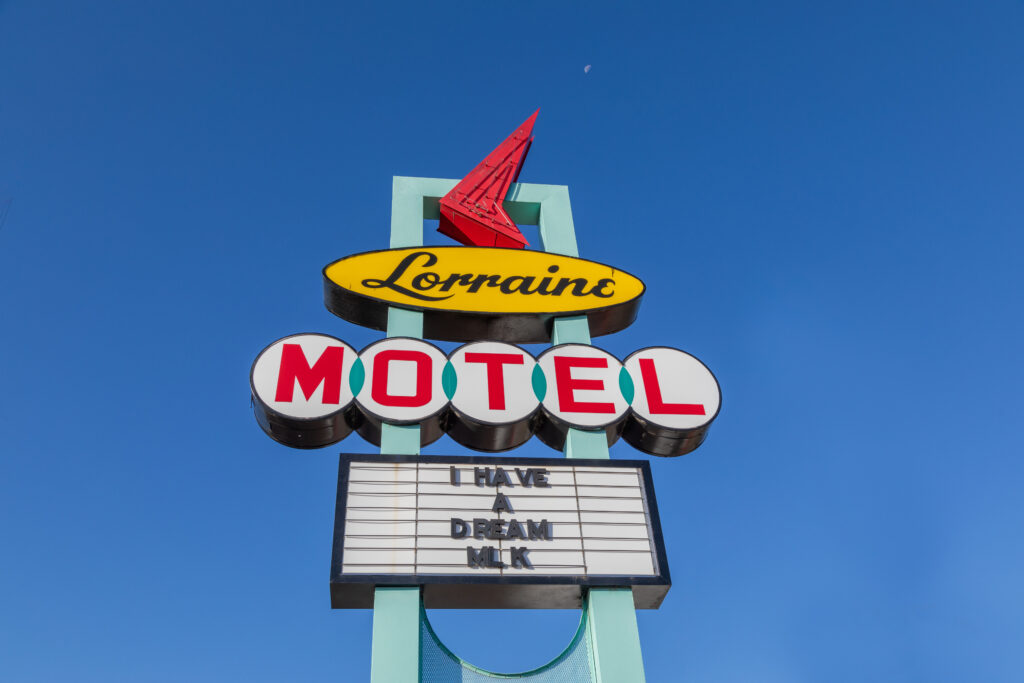In recognition of Black History Month, Go RVing contributor Jeff Crider recently recommended locations around Memphis, Tennessee, that RVers can visit this February.
RV enthusiasts interested in Black history can consult the Civil Rights Trail website to identify churches, courthouses, schools, museums and other landmarks across 15 states that played pivotal roles in advancing social justice in the United States during the 1950s and 1960, the RV Industry Association (RVIA) reported.
Go RVing’s campground search tool is also a great resource to identify the campgrounds that could serve as basecamps during Black history tours.
The following is from Crider’s article on the Go RVing website:
President Ronald Reagan issued a proclamation designating February as National Black History Month in 1986 — the same year the birthday of the famed civil rights leader, Dr. Martin Luther King Jr., was celebrated for the first time as a national holiday.
Visitors to the Tennessee section of civilrightstrail.com will see that Memphis is not only the site of critically important landmarks in American civil rights history, but significant historical sites involving Black musical, business and cultural heritage dating back to the time of the Civil War. These noteworthy landmarks include:
The National Civil Rights Museum at the Lorraine Motel: Established in 1991, the National Civil Rights Museum is located at the former Lorraine Motel, where civil rights leader Dr. Martin Luther King Jr. was assassinated on April 4, 1968. The museum features interactive exhibits, historic collections, dynamic speakers and special events throughout the year, offering visitors a chance to walk through history and learn more about one of the most tumultuous periods in American history. The museum is a founding member of the International Coalition of Sites of Conscience, which brings together historic sites, museums and memory initiatives from all around the world that connect past struggles to today’s movements for human rights and social justice.
The Beale Street Historic District: Beale Street became a thriving area for Black commerce and culture around the time of the Civil War. Beale Street later became home to many Black-owned businesses, clubs, restaurants and shops and was the headquarters of Ida B. Wells’ anti-segregationist newspaper, Free Speech. The newspaper office was housed in the historic First Baptist Church (Beale Street), which was built by a congregation of formerly enslaved people.
While the Beale Street Historic District includes numerous entertainment venues, such as B.B. King’s Blues Club and Restaurant, Rum Boogie Cafe and the Orpheum Theatre, the district also includes museums that highlight important aspects of Black history, such as the Stax Museum of African American Soul Music and The Withers Collection Museum and Gallery.
Memphis Cotton Exchange: This museum tells the story of cotton as well as its impact on Memphis and on the South’s economy and culture.
Slave Haven Underground Railroad Museum: This museum is housed inside the Burkle Estate, which was built in 1849 by Jacob Burkle, a livestock trader and bakery owner who opened his home to help slaves escape to freedom. The house contains a secret cellar and trap doors that were used by runaway slaves.
Campgrounds and RV parks that can be used as base camps for visiting historical sites in Memphis can be found using Go RVing’s Campground Search tool. These campgrounds include:
- Jellystone Park Camp-Resort in Horn Lake, Mississippi: This campground is only 20 minutes from downtown Memphis.
- Memphis KOA Journey in Marion, Arkansas: This campground is 15 minutes from down Memphis.
Read the full article from Go RVing here.
